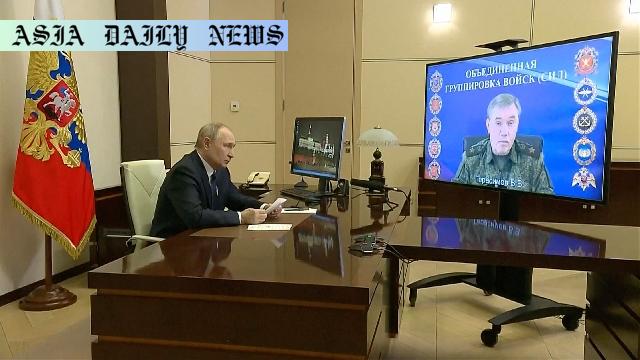Kursk, Russia recaptures control with aid from North Korean troops, marking a significant yet controversial milestone.
- Kursk, a western region in Russia, reportedly retaken from Ukrainian forces.
- North Korean troops participated, praised for their heroism.
- Ukraine denies Russia’s claims, citing propaganda motives.

Background of the Kursk Conflict
The region of Kursk, located in western Russia, has been a focal point of tensions between the Russian and Ukrainian forces. The conflict evolved intensely following cross-border incursions, beginning in late August 2024. Russian military officials have now declared the complete recapture of the region, marking a significant, albeit disputed, development in the ongoing conflict. Adding a layer of complexity, North Korean troops have been officially acknowledged by Moscow as playing an instrumental role in the operations, a groundbreaking first for such an alliance.
Participation of North Korean Troops
Among the more surprising revelations from the Russian government is the acknowledgment of North Korean military involvement. Under the auspices of a “comprehensive strategic partnership treaty,” North Korean soldiers have fought alongside Russian forces, providing ground support in Kursk. Chief of the General Staff, Valery Gerasimov, commended the steadfastness, courage, and heroism of these troops, presenting their involvement as pivotal in the liberation efforts. This development could signal a shift in global military dynamics, amplifying questions about North Korea’s growing involvement beyond its borders.
Ukraine’s Denial and Counterclaim
Despite Russia’s claims, Ukraine has countered with strong denials. The General Staff of the Ukrainian Armed Forces emphasized that fighting continues in several areas of Kursk. They labeled Russian statements as mere propaganda and accused Moscow of attempting to depict an overblown narrative of victory. Simultaneously, Ukraine highlighted its ongoing military efforts in the bordering Belgorod region, signaling their persistence in challenging Russian advances.
Geopolitical Implications
The involvement of North Korean troops in the Kursk conflict has sent ripples through the international community. This collaboration not only strengthens ties between Moscow and Pyongyang but raises questions about potential future alliances. How this partnership will shape global military and political strategies remains to be seen, as world leaders monitor the situation while evaluating the broader implications of such partnerships. For now, the claim of a recaptured Kursk serves as a propaganda victory for Russia, regardless of its factual accuracy.
Conclusion
As the situation in Kursk continues to evolve, the conflicting narratives from Russia and Ukraine reflect the fog of war—where truth becomes a casualty in the larger conflict. While Russian officials laud their combined forces with North Korea, Ukraine’s persistent counterclaims remind the world that the region’s fate remains contested. The unfolding developments highlight not only the fluid nature of modern warfare but also the growing interdependence among nations willing to form alliances that shift the balance of power on the world stage.



Commentary
North Korea’s Surprising Role in Kursk
The announcement of North Korean involvement in the retaking of the Kursk region is both surprising and significant. Given North Korea’s isolated nature and known lack of transparency, the revelation that its troops have participated in combat outside its borders raises numerous questions. What drove North Korea to support Russia so directly? This collaboration highlights a complex political dynamic, potentially hinting at deeper strategic objectives between both nations. Could this indicate North Korea’s ambitions to gain leverage on the world stage through its partnership with Moscow? Such questions make this development not only a military milestone but also a geopolitical puzzle.
Ukraine’s Perspective and Propaganda Allegations
While Russia portrays the retaking of Kursk as a decisive victory, Ukraine’s emphatic denial adds another layer of uncertainty to the situation. Who controls the narrative during war is just as crucial as the control of territory itself. Ukraine’s statements accusing Russia of propaganda reflect not only their military resilience but their intent to undermine Russia’s claims of success. It underscores the collateral battle for international support and legitimacy that has continued since the invasion began in 2022. The disparity between the respective statements of both countries should remind observers to critically examine source information when following such conflicts.
Implications for Future Alliances
The participation of North Korean forces beside Russia has implications that extend well beyond the borders of Kursk. This first-of-its-kind acknowledgment of collaboration between two controversial regimes signals the potential for new power coalitions. The fact that soldiers from North Korea could influence a conflict in Eastern Europe may signal their willingness to engage in further global missions, aligning ideologically or strategically with Russia. This unprecedented step raises questions about future military conflicts where such collaborations could become more visible, notably drawing in more actors into contested battles worldwide.